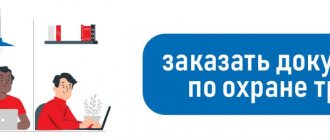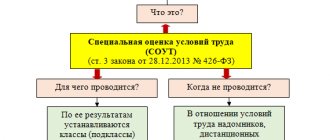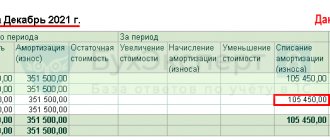Article 213 of the Labor Code: review of contents with comments for 2022
The article in question of the Labor Code of the Russian Federation establishes and regulates the procedure for employees to undergo mandatory medical examinations.
In Art. 213 of the Labor Code of the Russian Federation is determined by:
- cases where medical examinations are required;
- types and purposes of medical examinations;
- the possibility of introducing additional conditions for medical examinations;
- the need for additional tests and examinations;
- the need for medical examinations for psychiatric reasons;
- source of financing for these medical activities.
In Art. 213 of the Labor Code also makes reference to the current federal legislation regarding the standardization and regulation of medical examinations. The main document is the new order of the Ministry of Health and Social Development dated January 28, 2021 No. 29N, which approved the procedure for conducting mandatory examinations (hereinafter referred to as the Procedure for conducting medical examinations). This document came into force on April 1, 2022 and is valid until April 1, 2027.
Read more about state regulation of labor protection in the article “State regulatory requirements for labor protection .
Commentary on Article 213 of the Labor Code of the Russian Federation
The list of categories of workers who must undergo medical examinations is established by Art. 213 TK. Such inspections can be preliminary, periodic or extraordinary. Thus, all minors and persons under 21 years of age, workers hired for heavy work and work with harmful and (or) dangerous working conditions undergo a mandatory preliminary medical examination; for work related to driving, to determine the suitability of workers to perform these works and prevent occupational diseases. These employees subsequently also undergo periodic and, at the age of 21 years, annual medical examinations at the expense of the employer. Based on medical recommendations, they undergo extraordinary medical examinations.
Employees of food industry organizations, public catering and trade, water supply facilities, medical and preventive and children's institutions, as well as some other organizations undergo the specified medical examinations (examinations) in order to protect public health, prevent the occurrence and spread of diseases.
Harmful or dangerous production factors and work, during which preliminary and periodic medical examinations are carried out, as well as the procedure for their conduct, are determined by regulatory legal acts approved in the manner established by the federal executive body authorized by the Government of the Russian Federation. Thus, in accordance with Decree of the Government of the Russian Federation dated October 27, 2003 N 646 (as amended on February 1, 2005) <1>, Order of the Ministry of Health and Social Development of Russia dated August 16, 2004 N 83 (as amended on May 16, 2005) <2> the Lists were approved harmful and (or) dangerous production factors and work, during which preliminary and periodic medical examinations (examinations) are carried out, as well as the procedure for their conduct. If necessary, by decision of local authorities, additional conditions and indications for medical examinations may be introduced in individual organizations.
——————————— <1> NW RF. 2003. N 44. Art. 4313; 2005. N 7. Art. 560. <2> BNA. 2004. N 38; 2005. N 24.
Medical and preventive organizations (institutions) that have the appropriate license and certificate have the right to conduct medical examinations (examinations) (see Regulations on licensing of medical activities, approved by Decree of the Government of the Russian Federation of January 22, 2007 N 30 (as amended on September 24, 2010) < 1>; Order of the Ministry of Health and Social Development of Russia dated May 10, 2007 N 323 “On approval of the procedure for organizing work (services) performed in the implementation of pre-medical, outpatient and polyclinic (including primary health care, medical care for women during pregnancy, during and after childbirth, specialized medical care), hospital care (including primary health care, medical care for women during pregnancy, during and after childbirth, specialized medical care), emergency and emergency specialized (sanitary and aviation), high-tech, sanatorium -resort medical care" (as amended on 09.09.2009)) <2>.
——————————— <1> NW RF. 2007. N 5. Art. 656; 2008. N 15. Art. 1551; 2010. N 19. Art. 2316; N 40. Art. 5076. <2> RG. 2007. June 20; 2009. 13 Feb.
A referral for a medical examination in accordance with the lists of harmful, dangerous substances and production factors affecting workers is issued by the employer to the person being examined for presentation to the attending physician conducting the medical examination. An examination by a psychiatrist is carried out in a psychoneurological dispensary (department, office) at the place of permanent registration of the subject.
Employees engaged in certain types of activities, including those associated with sources of increased danger (with the influence of harmful substances and unfavorable production factors), as well as those working in conditions of increased danger, undergo a mandatory psychiatric examination at least once every five years. The procedure for conducting such an examination is determined by Decree of the Government of the Russian Federation of September 23, 2002 N 695 (as amended on February 1, 2005) <1>. In this case, the examination of the employee is carried out on a voluntary basis in order to determine his suitability for mental health to carry out certain types of activities, as well as to work in conditions of increased danger, provided for by the List of medical psychiatric contraindications for carrying out certain types of professional activities and activities related to sources of increased risk. danger, approved by Resolution of the Council of Ministers - Government of the Russian Federation dated April 28, 1993 N 377 (as amended on September 23, 2002) <2>. The examination is carried out by a medical commission created by the health care management body.
——————————— <1> NW RF. 2002. N 39. Art. 3796; 2005. N 7. Art. 560. <2> SAPP RF. 1993. N 18. Art. 1602; 1998. N 22. Art. 2759; N 32. Art. 3910; 2000. N 31. Art. 3288; 2002. N 39. Art. 3796.
Carrying out additional medical examinations (examinations) is recommended in a number of cases when working with harmful and (or) dangerous production factors. Funds for conducting such inspections (surveys) are allocated from the Social Insurance Fund of the Russian Federation.
Employers are obliged to provide conditions for employees to undergo medical examinations and medical examinations, as well as to freely release employees to undergo them (Clause 5, Article 24 of the Federal Law of November 21, 2011 N 323-FZ “On the fundamentals of protecting the health of citizens in the Russian Federation” <1> ).
——————————— <1> NW RF. 2011. N 48. Art. 6724.
Employees who, based on the results of the examination, have identified certain contraindications, are given a conclusion from the federal state institution of medical and social examination in hand, and a copy is sent to the employer within three days.
If an employee detects signs of an occupational disease or is suspected of it, the employee is sent to the occupational pathology center for a special examination in order to clarify the diagnosis and establish a connection between the disease and professional activity. The procedure for establishing the presence of an occupational disease is regulated by clauses 7 - 18 of the Regulations on the investigation and recording of occupational diseases, approved by Decree of the Government of the Russian Federation of December 15, 2000 N 967 <1>.
——————————— <1> NW RF. 2000. N 52 (part 2). Art. 5149.
Information about employees undergoing medical examinations is entered into the employee’s medical book (Order of Rospotrebnadzor dated May 20, 2005 N 402 “On a personal medical book and sanitary passport” (as amended on April 7, 2009) <1>).
——————————— <1> BNA. 2005. N 24; 2007. N 30; RG. 2009. May 13.
During the entire period of release from work for workers sent for medical examination (examination) and psychiatric examination, they retain their average salary. If an employee, in accordance with the established procedure, was sent for examination to an inpatient medical institution, his average earnings are retained for the entire period of stay in the hospital (see Article 185 of the Labor Code and commentary thereto).
What is the purpose of medical examinations under Art. 213 Labor Code of the Russian Federation?
The main purpose of any medical examination is to comply with safety requirements while the employee performs his job functions.
At the same time, within the meaning of Article 213 of the Labor Code of the Russian Federation, the main goal is achieved by solving three problems. So, it is necessary:
- Confirm the employee’s ability to perform their duties without causing harm to themselves. This task is implemented in the process of medical examinations of workers employed in hazardous and (or) hazardous industries.
- Confirm the employee’s ability to perform his duties without causing harm to others.
This task can also be defined as a preventive measure to protect the health of others and prevent the spread of infections. Through medical examinations the problem is solved:
- in the field of public catering;
- food production;
- medical institutions;
- children's institutions;
- certain sectors of housing and communal services (for example, water supply).
- Confirm the employee’s ability to perform his functions without causing harm to himself or others. The task combines the two previous ones, and this is typical first of all:
- for drivers of public ground transport;
- civil aviation pilots;
- electric train drivers.
How are the factors that require a medical examination determined?
In Art. 213 of the Labor Code provides factors in the presence of which working conditions may be hazardous to health and may require medical examinations of personnel.
Such factors are determined through a special assessment of workplaces based on working conditions, taking into account existing industry requirements and the current procedure for conducting medical examinations.
Read more about special assessment of workplaces in the material “Procedure for assessing working conditions in the workplace” .
What types of medical examinations are there and what do they depend on?
Preliminary examinations are carried out upon hiring. They depend on the conditions in which the new employee will work, and are designed to determine the compliance of his health with the professional requirements.
Periodic inspections are carried out during operation. Their necessity is usually determined based on industry requirements and the results of an assessment of working conditions. Designed to monitor the health status of workers and the risks of occupational diseases.
Extraordinary examinations may be scheduled in addition to periodic ones. They are usually associated with the identification of some additional factor (factors) that may affect the physical condition of workers, which is why they are also called target ones.
Daily (shift) examinations are practiced for those categories of workers who have the highest following occupational risks:
- risk of self-harm;
- risk of harm to others;
- risk of causing significant material damage.
Including (but not limited to) inspections every working day (shift) are required during work:
- at electric power facilities;
- directly related to the movement of railway transport;
- underground;
- in aviation - as part of aircraft crews and in the ground control group (control room).
Which employees must undergo a medical examination?
There is a list of professions and jobs that place workers at risk of serious illness or injury. Some of them were combined into 4 groups according to negative influence factors.
Chemical factors . The activity involves chemicals that negatively affect the worker’s body. For example, decorators paint dishes, and the paint contains lead.
Biological factors . The employee deals with biological substances and there is a risk of contracting a serious or incurable disease. For example, scientists involved in microbiology are at risk of becoming infected with unknown viruses.
Physical factors : noise, vibration, pressure, electromagnetic field. Physical working conditions that exceed norms are harmful to humans. His health will deteriorate over time. For example, divers experience great pressure when diving underwater.
Factors of the labor process . Lifting weights, working posture, working with optical instruments, etc. Workers must undergo a medical examination if, based on the results of an assessment of working conditions, these positions are recognized as hazardous.
The second part of the work is indicated in section VI of order No. 1420n. These are a couple of dozen options for work in a variety of areas: the food industry, trade, work at heights, felling.
All these people must undergo preliminary and periodic medical examinations. And workers under 18 years of age undergo a medical examination upon each employment.
If the production is dangerous and harmful, then even student interns undergo a preliminary medical examination, regardless of whether they are later hired there.
Who conducts medical examinations and how?
Medical examinations can be carried out by an appropriately licensed medical organization.
In addition, in some cases, a doctor from a medical organization must first undergo additional special training and have a certificate of the established form (for example, for a pre-trip examination of drivers).
Medical examinations may be carried out:
- at the enterprise itself;
- in a medical organization.
To learn about the document with which an employee is sent for a medical examination at a medical organization, read the article “Referral for a medical examination from the employer - form, sample .
This is established through an agreement between the employer and doctors. In any case, a special room must be equipped for such inspections that meets certain requirements.
If multiple frequent examinations are necessary, the employer has the right to hire a doctor (doctors) on staff and organize a medical office (medical post). In this case, all requirements for the qualifications of doctors and the standards of the medical office premises must be met.
The most important judicial practice under Art. 213 of the Labor Code of the Russian Federation is listed in ConsultantPlus. Sign up for a free trial access to K+ and read the judges' decisions.
How to send an employee for a medical examination
The following is required from the employer.
Make a list of employees who must undergo a medical examination.
Issue an order requiring employees to undergo periodic medical examinations.
Send a list of names to the medical institution where the workers will go 2 months before the medical examination.
Send the list to Rospotrebnadzor at the location of the organization.
Hand over directions for medical examination to employees against signature.
Workers, in turn, must come to the medical facility on the specified day, go through all the doctors, and get a conclusion. Otherwise, the employer will have to remove them from work.
Conditions of increased danger impose additional responsibilities. Employees must undergo not only a medical examination, but also a psychiatrist once every 5 years.
What does it mean not to be allowed to work based on the results of a medical examination?
If a doctor, during a medical examination, reveals contraindications to the employee’s performance of work functions, he is obliged to notify the employer about this. The latter, in turn, must not allow the employee to work and issue an appropriate order about this (according to the norms of Article 76 of the Labor Code of the Russian Federation).
Read more about the removal of employees from performing their duties in the material “Removal from work under the Labor Code of the Russian Federation - procedure and grounds .
Who sends for periodic medical examination and how?
Preliminary medical examination
The procedure for conducting a preliminary examination is as follows (Section II of Order No. 29n):
- The employer issues an employee entering work a referral for a medical examination. The referral is issued to the employee against signature.
- The employee submits a referral, SNILS, passport, insurance policy to the medical institution. After this, a medical card is issued for the employee.
- Doctors conduct a medical examination and issue conclusions based on the results of the examination and tests. After all procedures are completed, a conclusion is drawn up, in which the full name is indicated. employee, the name of the employer and structural unit, the name of the harmful or dangerous factors of work and provide the results of the preliminary examination (whether contraindications to work have been identified or not).
The conclusion is drawn up in three copies: one copy for the employee, the second for the employer, and the third copy is attached to the medical record.
Is time spent on a medical examination included in working hours?
If medical examinations are required daily (every shift), the time spent completing them is included in working hours. In accordance with the procedure for conducting medical examinations, the employer needs to approve:
- lists of professions and persons for whom such examinations are mandatory;
- scope of medical examination (tests for drugs and alcohol, blood pressure measurement, external examination, express tests);
- internal company regulations for such inspections (at the beginning of the shift, at the beginning and end of the shift).
In other cases, the provisions of Art.
185 Labor Code of the Russian Federation. According to them, for the time spent by employees undergoing mandatory inspection, they retain their average earnings at work. You can find more complete information on the topic in ConsultantPlus. Free trial access to the system for 2 days.







